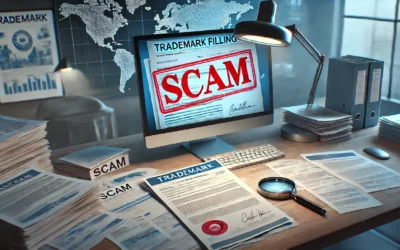In a recent decision, the EU court has shot down a controversial trademark application. The name in question? None other than “Pablo Escobar,” the notorious Colombian drug lord.
Background
On 30 September 2021, Escobar Inc. filed an EU trademark application for the trademark PABLO ESCOBAR. The application covered a huge variety of goods and services, ranging from medicinal preparations for stimulating hair growth to cosmetics and legal services. Escobar Inc. is a company founded by Pablo Escobar’s brother Roberto, and led by a Swedish “business man”, who is currently detained in Spain and wanted in the US for money laundering and fraud charges.
Escobar Inc. even managed to put some electronic products on the market, though with not much success.
Refusal of the trademark PABLO ESCOBAR
The EUIPO refused the trademark application on the basis that it was against public policy and accepted principles of morality. The trademark application was made, according to Escobar Inc., to prevent others from exploiting the name Pablo Escobar for commercial purposes. The applicant also argued that the refusal of the trademark would not lead to the elimination of use of the trademark Pablo Escobar, but on the contrary, would make it more common since it would be open for anybody to use. The EUIPO agreed with this view, but considered it irrelevant for proceedings.
Escobar Inc. also argued that Pablo Escobar did many good deeds for the poor in Colombia and that he had become a mythical figure in mainstream popular culture, similar to “Robin Hood”. The applicant also stated that since Pablo Escobar had never been convicted of the offenses he is associated with (drug trafficing, narco-terrorism), he should enjoy the presumption of innocence.
Dealing with these arguments, the EU court first considered that many people associate the name Pablo Escobar with drug trafficking and narco-terrorism, rather than with his possible good deeds in favour of the poor in Colombia. For the purposes of deciding whether a trademark can be registered or not, the relevant issue is how the public perceives the name.
Secondly, the EU court refused the applicant’s argument that Pablo Escobar was never convicted of the drug related offenses he was accused of. It stated that although the presumption of innocence is a factor to be taken into consideration, and although Pablo Escobar had not been convicted of the crimes in question, the name was still perceived as an offensive symbol of organised crime causing a great deal of suffering.
How about the names of other criminals?
Trademark Pablo Escobar was refused because the name is associated with serious crimes, though the court admitted that he had not been criminally convicted of those crimes. His short-lived detention in the La Catedral “prison” was part of a voluntary deal with the then Colombian government, not a criminal conviction.
At the same time, many trademarks of persons that have been convicted of crimes in the European Union have been registered. For example, both Cristiano Ronaldo and Lionel Messi have been convicted of fraud in Spain, and both have received suspended prison sentences. Both CRISTIANO RONALD and LIONEL MESSI are registered trademarks in the EU. Is there a double standard?
Every case is assessed on its own merits. Pablo Escobar is mainly associated with narco-terrorism, whereas Messi and Ronaldo are mainly associated with football. The question of criminal conviction is not decisive when assessing whether a trademark should be refused on public policy grounds. What matters, is the public perception of the name. This is why for example Che Guevara and Al Capone have been accepted as trademarks, but Bin Ladin and La Mafia have not.
Conclusion
It is not very common for a trademark to be refused because it is contrary to public policy or accepted principles of morality. The decision is made based on overall evaluation on how the name is perceived by the relevant public.



